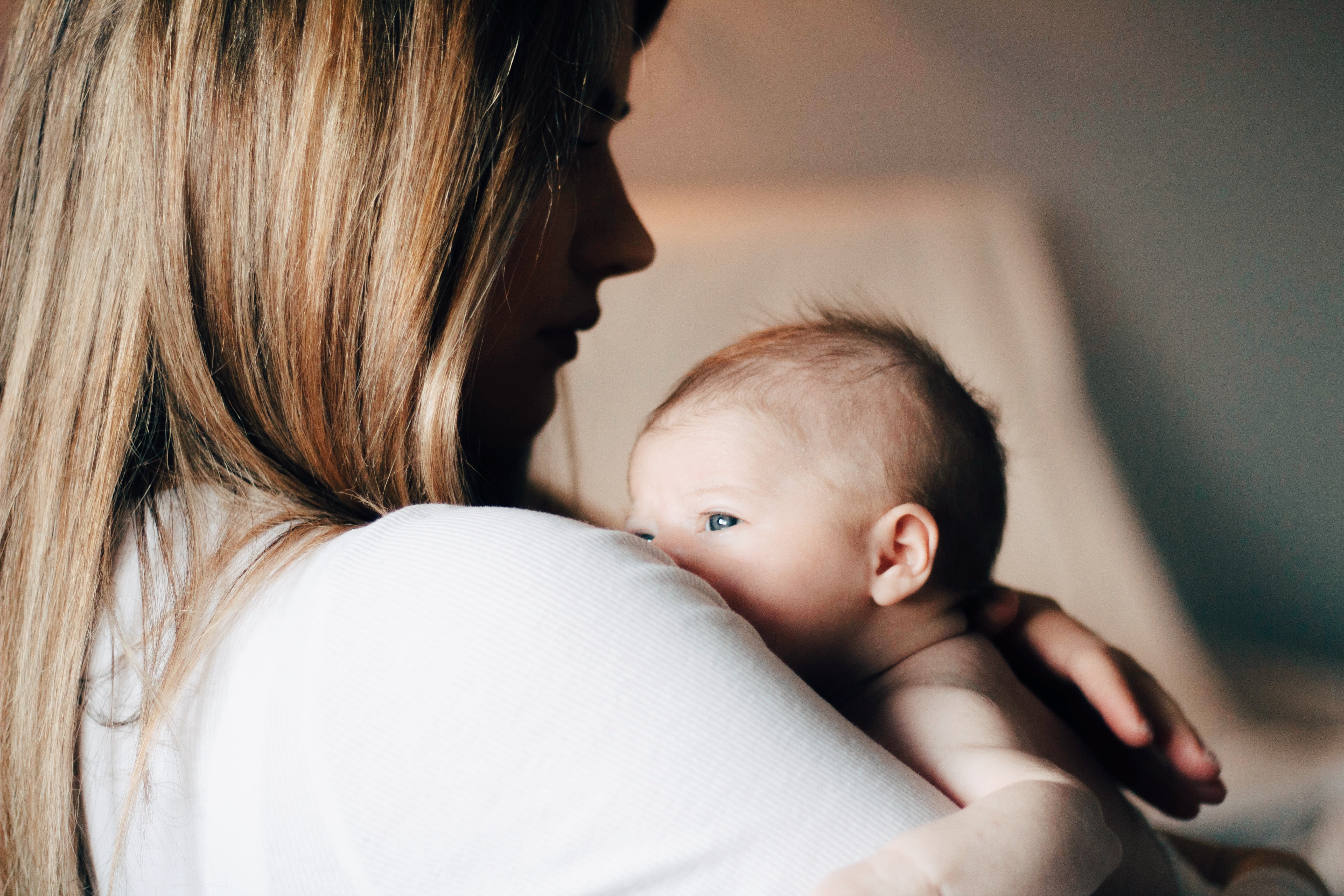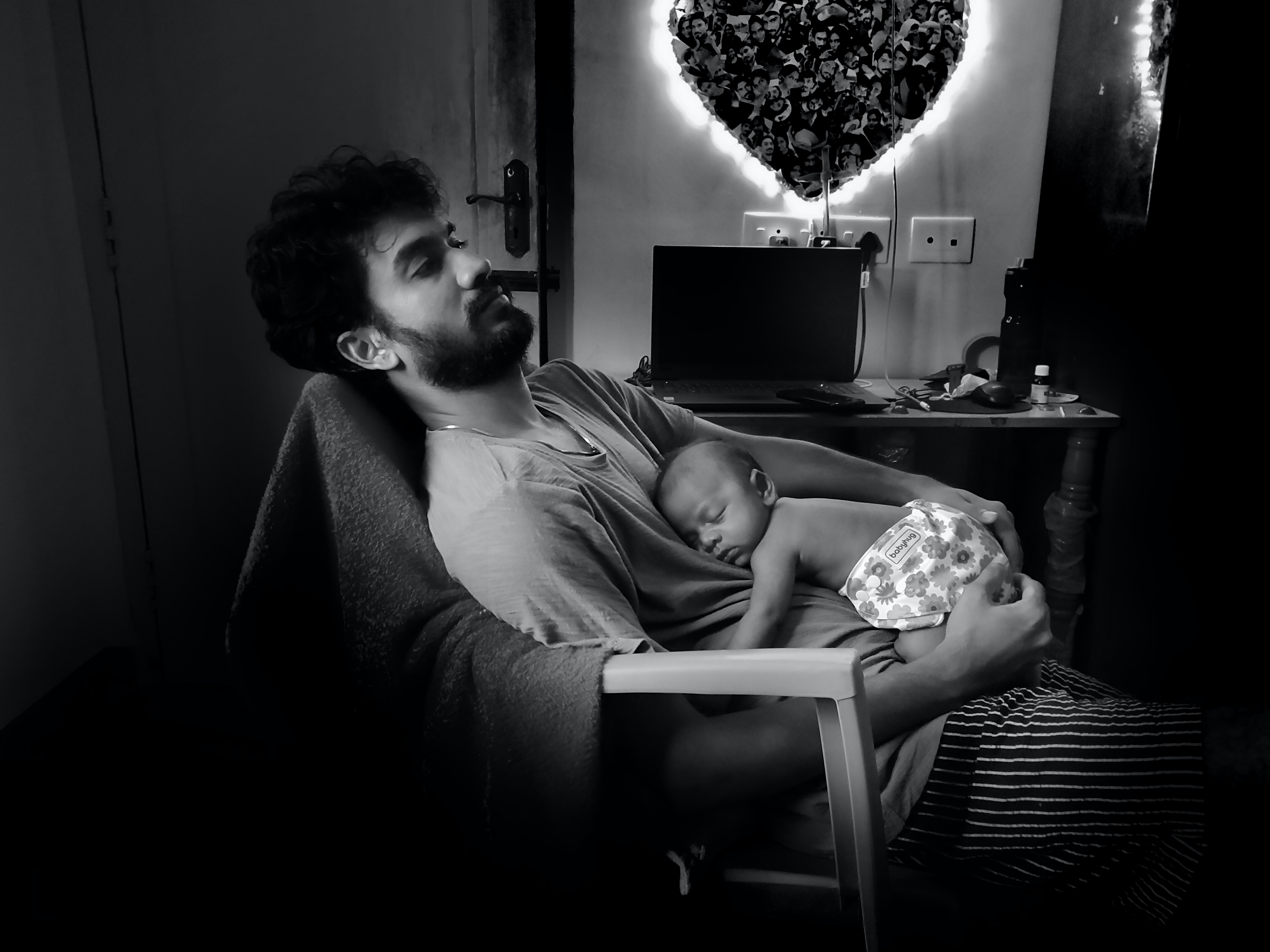What are the Signs of Postnatal Depression & How to Get Help

It’s not unusual to experience mood swings, feel a bit down or even become a little weepy soon after having a baby. But sometimes these feelings are more persistent and can get worse, making it hard to bond and cope with your new baby. If you’re not feeling yourself and the ‘baby blues’ don’t seem to be getting better, you may be experiencing postnatal depression. It doesn’t mean you’re a bad parent and you don’t need to go through it alone – help is available.
The arrival of a baby can bring parents happiness and excitement but it’s a life-changing experience with big adjustments and challenges. The changing hormones, round the clock feeding and disrupted sleep can feel overwhelming and cause a roller-coaster of emotions. So how can you tell if what you’re experiencing is the ‘baby blues’ or you’re showing the signs of postnatal depression (PND) & anxiety?
Facts about postnatal depression
Between 10 to 20% of new mothers are diagnosed with postnatal depression, with many more going undiagnosed. Casual estimates outline that up to 1 in 7 parents experience postnatal depression (PND). Also known as postpartum depression, PND is a common, clinically recognised and treatable medical condition. The exact causes of PND are not known, but the enormous physical, emotional and social changes involved in becoming a parent seem to play a significant role.
Signs of baby blues
The hormonal shifts that parents experience after giving birth are normal, so if you feel sad or moody a few days after your baby is born you don’t have to worry too much about it. Commonly referred to as the ‘baby blues’, these feelings generally disappear after a few days without needing to be treated (although the love and support of those around you will always help). As your hormone levels settle into parenting, your body does too. So be kind to yourself – your life, body and being, is adapting to the ride that is parenting. You may be experiencing the baby blues if you begin to:
- Experience a sense of sadness
- Experience sudden mood swings
- Struggle to sleep, even though your nights are often filled with regular wake-ups to care for your little one
- Notice that these symptoms start to fade after 2 to 3 days
Are you experiencing more than the baby blues?
If you find that these symptoms linger for more than a few weeks, it may be a sign of developing postnatal depression. If you feel like the baby blues have continued, or your symptoms are worsening, you should talk to someone about it and visit your doctor or health professional.
Symptoms of postnatal depression
Although the symptoms of the baby blues and postpartum depression can look similar at first, postnatal depression lingers for much longer. You may be diagnosed with postnatal depression if you are experiencing:
- An overall sense of concern or worry that won’t subside, no matter what you try to do. You may find you are unable to focus on anything positive, for fear that it will be ruined by an unfortunate event that has not taken place.
- Unexpected obsessive behaviour, or compulsive thoughts. Many parents diagnosed with postnatal depression have reported that they are obsessive over tiny things. They often feel like their obsessive actions are their only path towards feeling secure, on a day-to-day basis.
- Mood swings. The hormonal flux of parenthood can lead to mood swings, but these mood swings persist consistently it could be an indicator of PND
- Withdrawing from your family members and friends. PND often makes you feel isolated from the outside world (and the early days of life with a newborn can feel terribly isolating too!). If you find yourself cutting yourself off from others or turning down offers of help, you may be experiencing PND.
- Fatigue, lethargy, and an overwhelming sense of tiredness. And yet, you can’t quite seem to fall asleep, even when your little bub is satisfied and snoozing.
- Worrying thoughts you cannot seem to control. These dark thoughts could range from suicidal ideation, to thinking your bub could come to harm or thinking about harming your bub yourself.
- Not all cases of postnatal depression are the same. There are many different symptoms and they can range from mild to moderate. If you think you may be experiencing PND, there are lots of ways to seek help. Taking the time to chat to your doctor or health professional is the most important thing you can do for yourself.
When should you look out for the symptoms?
Antenatal depression is depression that happens during pregnancy and postnatal depression happens after birth. PND can be diagnosed at any point during the first year of becoming a parent, although it usually starts in the first few weeks or months. It can start slowly or come on quite suddenly.
What should you do if you think you’re showing the signs of postnatal depression?
-
Know that it’s not your fault
The most important thing to understand is that postnatal depression is not your fault. You are simply experiencing a very common medical condition that is closely associated with bringing a new baby into your family. -
Seek professional help
Do the best thing for yourself, your bub, your partner and your family and seek professional help. Contact your doctor, midwife, health care nurse, or other medical professional who you feel comfortable with. The sooner you get professional help, the faster you’ll move towards recovery and feeling like yourself again. -
Talk to your family
It is likely that those close to you have already picked up on the difficulties you are facing. Don’t be afraid to let your partner know how you’re feeling and allow them to give you the help and support you deserve. If you are a single parent, reach out and talk to a family member, a friend, your midwife or doctor. -
Be kind to yourself
Ditch the housework and cleaning as much as you can. The dishes can soak for the evening. Dinner can be ordered in. Stop doing anything that weighs you down or makes you feel worse. Be kind to yourself and give yourself time to rest and heal. -
Find sleep time wherever you can
A lack of sleep can affect our mood and make us feel like we are not our best self, and that’s why a lack of sleep can also exacerbate the symptoms of PND. The advice from the experts is that it’s really important to sleep whenever your baby sleeps, so if you can, and don’t have another baby or toddler to look after, try to nap when bub naps at least once during the day. Learn more about baby’s sleep needs and healthy sleep patterns on Love to Dream™ Sleep Series.

Photo by DICSON on Unsplash
Postnatal depression in dads, non-birth parents and carers
Dads, non-birth parents and carers are also at risk of experiencing postnatal depression. It’s important for anyone with a new baby in their life experiencing the symptoms of PND, to seek out help and support.
Help and support
If you think that you, or someone you know, may be showing the signs of PND, reach out to your doctor, midwife, health care nurse, other medical professional, or one of the wonderful support services listed on the Love To Dream™ Sleep Series for help and support.
References:
https://www.marchofdimes.org/pregnancy/baby-blues-after-pregnancy.aspx
https://www.helpguide.org/articles/depression/postpartum-depression-and-the-baby-blues.htm
https://www.healthline.com/health/baby-blues
https://www.webmd.com/depression/postpartum-depression/postpartum-depression-baby-blues
https://www.mayoclinic.org/diseases-conditions/postpartum-depression/symptoms-causes/syc-20376617
https://kidshealth.org/en/parents/babyblues.htm
Title image credit: Hollie Santos on Unsplash





Leave a comment